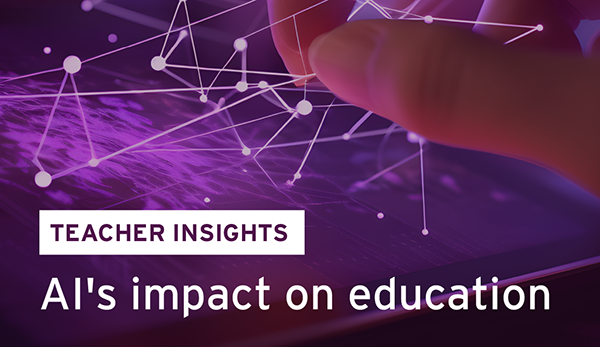
A recent report that Trinity College London has undertaken sheds light on teachers' perceptions of incorporating artificial intelligence (AI) tools, like ChatGPT, in educational settings.
According to the findings, a significant portion of teachers, constituting two-thirds (63%), believe that generic AI tools are too unreliable and inaccurate for effective classroom use. However, amidst the rising prevalence of generative AI tools among students, over one in ten teachers suggest that schoolwork grading needs to be reassessed due to an assumed utilisation of AI.
The report, based on a study involving over one thousand teachers, reveals varied opinions on the integration of AI into the curriculum. While more than half (54%) advocate for teaching students the ethical implications of AI usage, a substantial portion (38%) emphasises the importance of imparting foundational knowledge about AI workings. Interestingly, only 4% support the idea of granting students access to AI tools during exams.
Despite a modest 23% of teachers admitting to using AI tools in their teaching during the past term, there's a growing interest in generic tools like ChatGPT and Google Gemini. Consequently, only 19% of teachers oppose the incorporation of AI into the curriculum by the Department for Education (DfE) and a significant portion of teachers (27%) advocate for integrating AI into mathematics and science classes.
Erez Tocker, CEO of Trinity College London, says that: “Teachers’ scepticism towards generic AI tools underscores not a rejection but a call for precision and reliability. Notably, the research indicates that a quarter of teachers are already incorporating AI into their instruction, signalling a readiness for change, provided these tools meet their exacting standards.”
The report also underscores teachers' eagerness for training in effective AI utilisation, with 61% expressing confidence in using AI more if adequately trained. Additionally, nearly half (46%) believe that leveraging AI could improve educational outcomes by allowing them to dedicate more time to direct student interaction.
Trinity commissioned this research to better understand teachers' motivations and needs while developing and training an AI-powered teaching platform, NoteLab. The platform uses AI to streamline lesson planning, offer greater depth to learner feedback, and tailor academic progression to individual student's specific needs and will be offered for both Music and English language initially.
“When used ethically, AI can become a pivotal tool in expanding traditional learning boundaries and fostering creativity, critical thinking, and problem-solving skills.”
Erez Tocker, CEO Trinity College London
Looking forward, a significant portion of teachers (32%) foresee relying on AI for customising lesson plans and resources for individual students in the next five years.
Concerns over AI's role in the classroom also extend to considerations about its impact on job security. However, less than one in five (19%) believe that AI will lead to government replacement of teachers.
Mr Tocker emphasises that: “When used ethically, AI can become a pivotal tool in expanding traditional learning boundaries and fostering creativity, critical thinking, and problem-solving skills. Integrating AI seamlessly into education will help prepare students for a future where technology and human creativity converge, rendering education more inclusive, effective, and forward-thinking.”
David Weller, Digital Lead at The University of Exeter commented on the findings “AI will induce change in education, but it won’t upend it. Previous innovations gave teachers more options. Whether they used those options and how enthusiastic and creative they were was up to them. It’s the same with AI, but perhaps slightly more so.”
The research, conducted by YouGov among a representative sample of 1,012 UK teachers, provides valuable insights into the evolving landscape of AI in education.
For further details, access Trinity's report Friend or Foe? Teacher Attitudes to Artificial Intelligence.
To be the first to hear about Trinity College London’s new AI tools NoteLab Music and NoteLab English, and be able to get free access to them, sign up here!